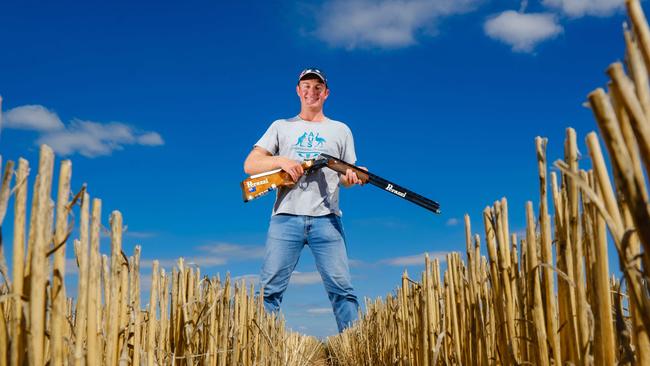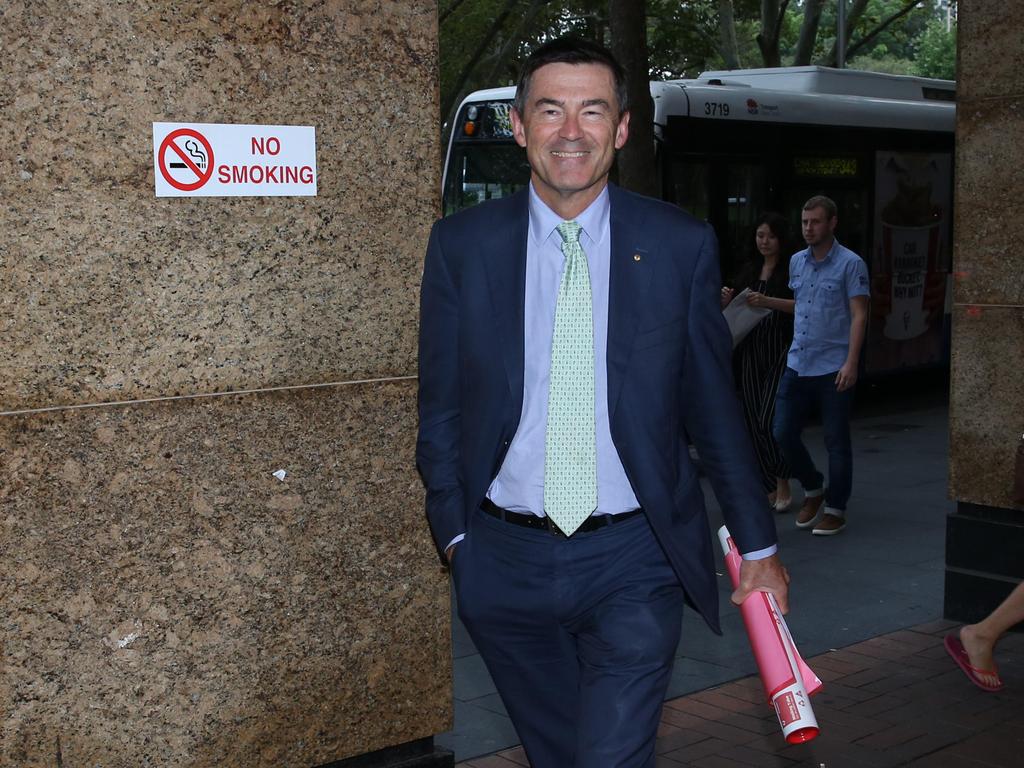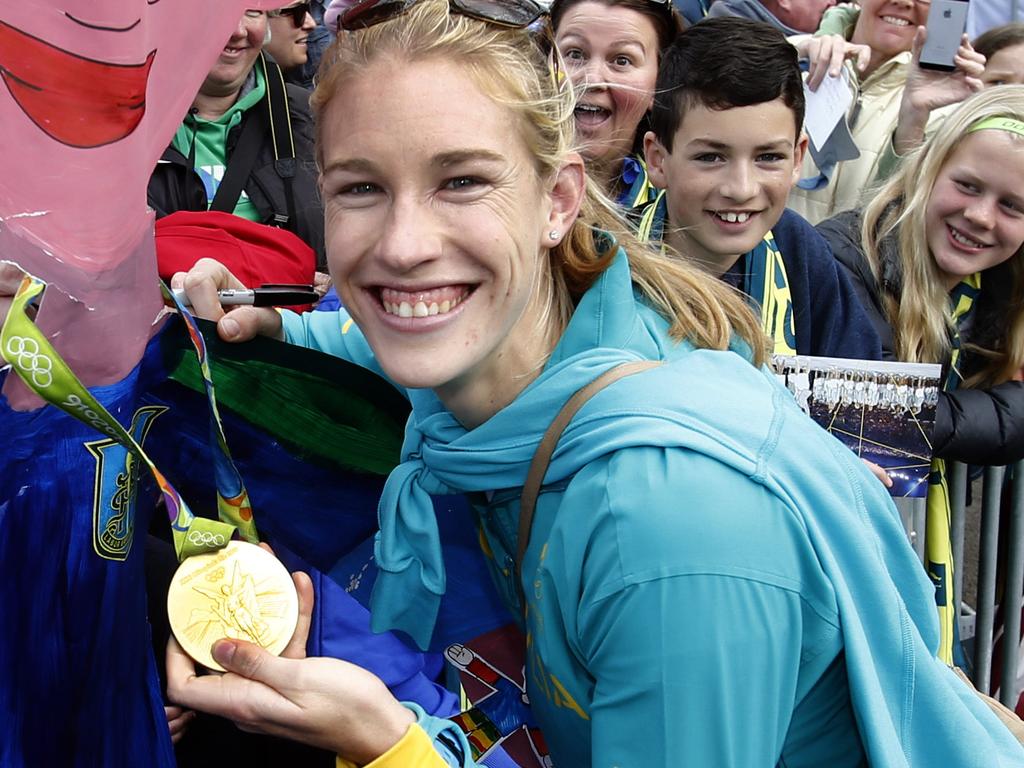James Willett’s parents sacrifice for Olympic gold
James Willett’s parents sold the family farm in the middle of drought to help fund his dream of winning Olympic gold.

James Willett’s parents sold the family farm in the middle of drought to help fund his dream of winning Olympic gold.
Seven years ago Arthur and Dionne sold their Riverina cropping property outside Mulwala on the NSW border. They started working extra hours, bought a “smaller farm” to create their son’s very own “field of dreams”, initially pouring $100,000 into building a world-class gun range in a paddock.
“I am grateful for everything my parents have done for me, plus coming to a smaller farm has freed Dad and Mum to come and support me when I have to travel for my sport,” the 24-year-old shooter said.
“We have just a couple of sheep on the farm and Dad’s been doing contract work on a farm up near Narrandera. Mum now works in town at the vets in Yarrawonga.
“It’s my goal to make the Tokyo Olympics and improve on my fifth result in the Rio Games.”
The issue of an Olympic hopeful’s financial sacrifices in comparison to the cash-splashing at the top end of Australian sport has been thrust into the spotlight after The Australian revealed the Australian Sports Commission high expenditure on administration.
Heading into the Tokyo Olympics, The Australian has exposed how millions of dollars has been spent by the ASC front office on executive staff, offices outside Canberra, training and recruitment consultants. More than $8m has been spent on executive training, and an outlay of nearly $5m on recruitment consultants.
Willett’s coach and Olympic champion shooter, Russell Mark, labelled millions spent on consultants, executive staff and lavish rent as “absurd”.
“We seem to just want to look after the people at the top,” Mark said. He added the financial sacrifice made by Arthur and Dionne Willett was “remarkable”.
“It’s tough. I don’t know if Arthur and Dionne Willett will ever get their money back even if James wins Olympic gold,” he said.
“They’ve got a wonderful world-class facility on their small farm; it’s a field of dreams, you don’t see that anywhere in the world. But he’s been forced to do it. He can’t keep driving three hours to the nearest gun range in Canberra or Lilydale, so what do they do? They go into a heap of debt and build the field of dreams in their backyard.
“What’s enough funding for someone like James Willett? Where do you draw the line? Should the taxpayer be burdened with building an Olympic facility for James Willett? Well, no.
“What is the right level of support? But I will tell you this: if you look at Shooting Australia’s website they’ve got 18 people working for them … when Michael Diamond and I won gold in 1996 they had just two staff members.”
When Mark and Diamond won gold and Deserie Baynes claimed bronze at the Atlanta Olympics there was barely any front-office staff at Shooting Australia — no marketing manager, swish office or wellbeing coach — but still they claimed three Olympic medals. “Back in 1996 Shooting Australia had one CEO and one high-performance manager; two staff members,” Mark said. “And that CEO was part-time.”
“Today’s there’s too many administrators. Having that AIS office in Collins Street in Melbourne highlights how wrong they’ve got it.”
In a statement on Friday the ASC said “over the past four years, we have proudly invested more than $500m in preparing our athletes and teams for the upcoming 2020 Games in Tokyo. We are conscious that our funding is public money and endeavour to be prudent with it.”
The ASC and AIC did not respond to requests for further comment on Sunday. Shooting Australia was contacted for comment.
Shooting is a very expensive sport; factoring in travel, ammunition and guns, Willett says a season costs him “close to $60,000” a year. Rounds of shells and clay targets can cost $600 a day.
“Just for training, that’s where shooting is one of the harder sports with ammo and target costs,” Willett said. “Shooters alone can spend $40,000 on travel trying to make teams.”
Willett, who works running the family farm and shooting events on his range, said he was fortunate to win last year’s pairs at the world championships with Leticia Scanlan, giving him “dais funding”, which totalled $35,000 last year.
Willett is also thankful he and his parents recently invested another $100,000 to upgrade their centre in the hope of making Tokyo.
After his success in Rio, Willett has a few sponsors, including ammunition company Fiocchi, gun brand Perazzi, Promatic, Cobram Toyota, and Pinners Refrigeration and Air Conditioning in Albury.
“The hardest thing for us in Australia is access to ranges while trying to maintain a full-time job,” he said. “The shooters internationally, in say Italy or America, they get employed by the police or the army or defence force. Those top shooters get paid a wage, have their travel paid for. They shoot for 10 to 15 years, go back into that service job, then retire and get a pension.
“We are trying to compete against those guys. We have to shoot well to get support. To get that first step you have to rely on someone and usually that’s parents.”






To join the conversation, please log in. Don't have an account? Register
Join the conversation, you are commenting as Logout